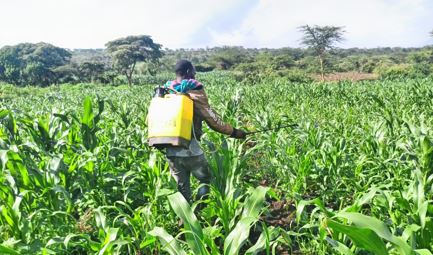Due to their medicinal and nutritive value, camel products have seen a booming demand among the locals of Igembe region.
In a remarkable entrepreneurial endeavour, a thriving camel meat business that was believed to only flourish in arid places like Isiolo has extended its reach to Maua town in Igembe South sub-county.
With camels fetching a hefty price that varies according to size for slaughtering, the venture has found its niche in the lucrative market of camel meat sales, where each kilogramme of the premium meat commands a staggering price of Sh540 per kilogramme in Maua.
According to one Sebastian Gitonga, a camel businessperson in the town, the venture’s financial success is underpinned by a keen understanding of the market and the quality of its offerings. With each camel yielding approximately 600 kilogrammes of meat, depending on its size, the profit margins prove substantial and enticing.
He adds that customers from near and far, such as from Mutuati and Igembe North, flock to his butchery and hotel, drawn by the tantalising prospect of savouring tender, succulent camel meat, renowned for its distinctive flavour and culinary appeal.
Gitonga, who has five employees, maintains that the business has not only fueled economic growth in the region but has also provided employment opportunities to the local communities.
“The business is doing well since people have realised the health benefits of camel meat, soap and milk,” he noted.
Gitonga explained that he purchases camels from Garbatula and Isiolo and walks for about 11 hours with the camel from the market to Maua town.
“The journey from Isiolo to Maua is no small feat, with a challenging and arduous trek since we have no other mode of transport,” he stated.
Gitonga says that the prices of camels vary depending on the size, with some that weigh up to 600 kilogrammes going for Sh70,000 and others that are small in size going for Sh30,000. He says that farmers only sell female camels that have stopped calving.
“Since camels only survive better in a hot climate, we can only keep them for around two weeks before slaughtering,” Gitonga explains.
He says that the precious animal carries a pregnancy for nine months and can have young for up to six calvings.
Gitonga revealed that on a good day, he can slaughter up to two camels and clear the stock before day ends due to its high demand.
He states that due to the close interaction in miraa business with the Cushite living in Maua town who expressed a high demand for the camel meat and soup, he thought of materialising the idea, which has brought him success alongside his miraa business.
He added that a cup of camel soup costs only Sh10, and majority of his clients like bone soup, which is believed to protect joints, decrease inflammation and help one lose weight.
Camel meat is low in cholesterol, contains minerals like magnesium, iron, and potassium, and has higher concentrations of polyunsaturated fatty acids and vitamin C than other red meat.
By Kamanja Maeria and Isaiah Mutharimi





